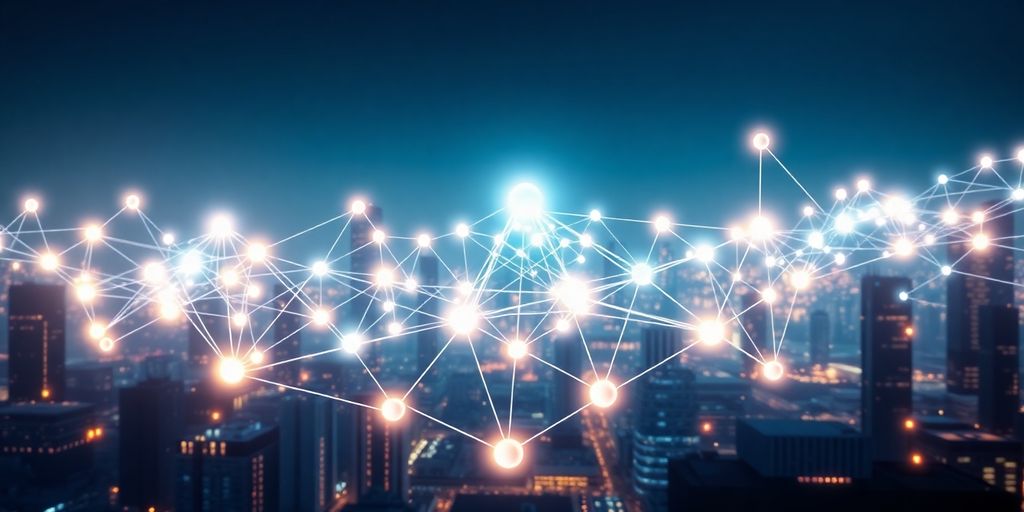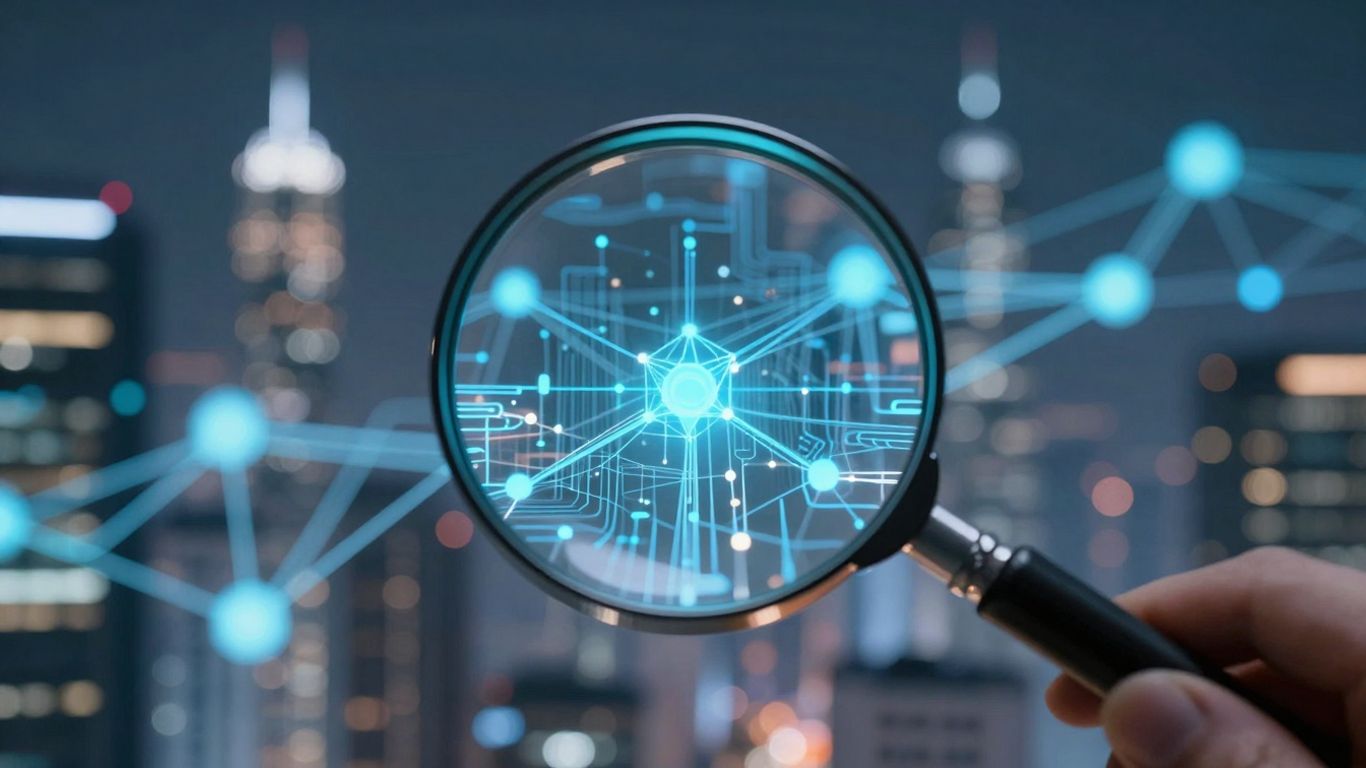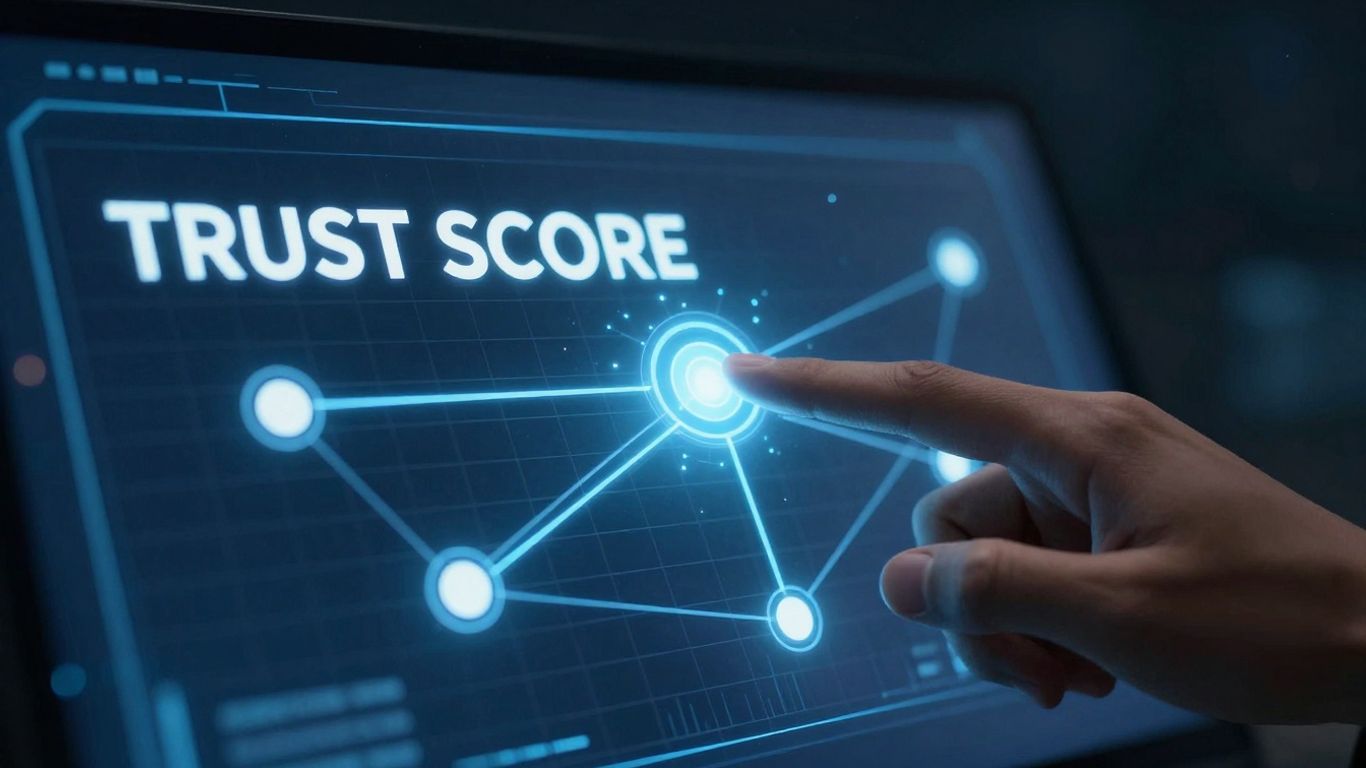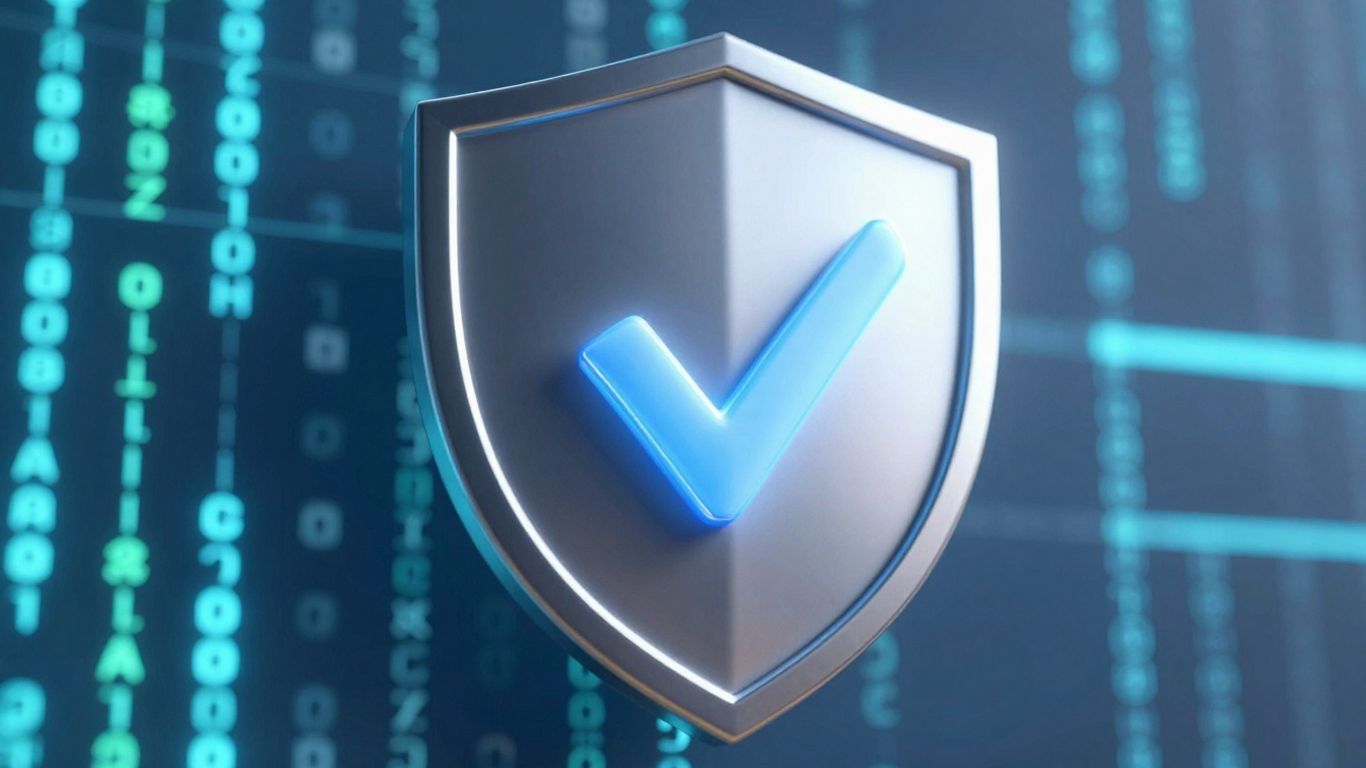[ newsletter ]
Stay ahead of Web3 threats—subscribe to our newsletter for the latest in blockchain security insights and updates.
Thank you! Your submission has been received!
Oops! Something went wrong. Please try again.
Explore how AI on blockchain transforms industries, enhancing security, efficiency, and innovation across sectors.





Artificial intelligence (AI) and blockchain technology are shaking things up in a big way. These two powerful tools are coming together to change how industries operate, making processes smarter, more secure, and more efficient. As businesses start to adopt AI on blockchain, we’re seeing a shift in how data is managed, security is handled, and operations are streamlined. This article explores the exciting potential of this combination and what it means for the future.
AI and blockchain, when put together, have the power to really change things. It's not just about making things a little better; it's about completely rethinking how industries work. Think about it: blockchain gives us security and a way to make sure everyone is on the same page, while AI brings the brains to analyze data and make smart decisions. It's a pretty powerful combo.
Blockchain is already known for its security, but AI can make it even stronger. AI can spot unusual activity that might point to fraud or attacks. Plus, with AI, we can improve transparency by making it easier to track where data comes from and how it's being used. It's like having a super-smart security guard that never sleeps.
AI can automate a lot of the tasks that people used to do, freeing them up to focus on more important things. For example, AI can handle routine transactions, manage data, and even make predictions about what's going to happen next. This means things get done faster, with fewer mistakes, and at a lower cost. It's all about making operations smoother and more efficient.
Data is a big deal, and AI can help us manage it better on the blockchain. AI can analyze huge amounts of data to find patterns and insights that we might otherwise miss. This can help us make better decisions, improve our products and services, and even create new business models. It's like having a data scientist working for you 24/7.
The combination of AI and blockchain isn't just about fixing problems; it's about opening up a whole new world of possibilities. This partnership has the potential to reshape industries and set the stage for big changes.

AI and blockchain are making waves across different sectors. It's not just about hype; we're seeing real changes in how things are done. From healthcare to supply chains, the combination of these technologies is opening up new possibilities. It's interesting to see how these innovations are actually playing out in the real world.
Healthcare is a big one. Imagine a world where patient records are totally secure and easily accessible. That's the promise of blockchain. AI can then step in to analyze this data, helping doctors make better decisions and improve patient care. It's not just about security, though. AI can also speed up drug discovery by analyzing huge datasets, potentially leading to faster breakthroughs. It's a win-win.
Supply chains are complex beasts. Keeping track of goods as they move around the world can be a nightmare. Blockchain offers a way to create a transparent and immutable record of every step in the process. AI can then be used to optimize logistics, predict demand, and identify potential disruptions. This means fewer delays, lower costs, and a more efficient supply chain overall.
Fraud is a constant threat in the financial world. AI can analyze transactions in real-time, flagging suspicious activity and preventing fraud before it happens. Blockchain can also be used to create more secure and transparent financial systems. This could lead to lower fees, faster transactions, and a more level playing field for everyone.
The integration of AI and blockchain is not just a technological trend; it's a fundamental shift in how industries operate. It's about creating systems that are more secure, more efficient, and more transparent. The potential benefits are enormous, and we're only just beginning to scratch the surface of what's possible.
Here's a simple example of how AI and blockchain could work together in finance:
It's not perfect, but it shows the potential.

It's pretty cool how AI and blockchain can work together. Blockchain gives you security and that decentralized thing, but it can be slow and clunky. AI? It's smart, but sometimes you don't know why it makes decisions. Put them together, and you get something really interesting. The convergence of AI and blockchain offers remarkable potential by addressing each other’s limitations and enhancing their capabilities.
Blockchain can be slow, right? All that verifying takes time. AI can help speed things up. Think about it: AI can analyze the network, predict when things will get busy, and optimize how transactions are processed. It's like having a smart traffic controller for the blockchain. This is especially important for DeAI merges that need to handle a lot of transactions.
AI's decisions can be a bit of a black box. You get an answer, but you don't always know how it got there. Blockchain can fix that. By putting AI's decision-making process on the blockchain, you get transparency and auditability. Everyone can see how the AI arrived at its conclusion. That builds trust, especially in areas like finance or healthcare.
Imagine an AI that approves loans. If that AI's decision-making process is recorded on a blockchain, regulators and customers can see exactly why a loan was approved or denied. This level of transparency is a game-changer.
Smart contracts are cool, but they're basically just code. They do what they're told, but they're not very smart. AI can change that. Imagine smart contracts that can adapt to changing conditions, learn from data, and make decisions on their own. That's the power of combining AI and smart contracts. It opens up a whole new world of possibilities. Think about supply chain management, where smart contracts can automatically adjust to disruptions based on real-time data analyzed by AI.
Here's a simple comparison:
Alright, so you're thinking about putting AI and blockchain together? It's not always a walk in the park, but it can be super powerful. Let's talk about how to actually make it happen.
One of the coolest things about blockchain is that it's all about data that's spread out everywhere. AI thrives on data, so this is a match made in heaven, right? Well, kind of. You need to figure out how to get the AI to access and use all that decentralized data without messing up the security and privacy that makes blockchain so great in the first place. It's like trying to build a house on a foundation that's constantly shifting – you need some solid strategies.
Imagine being able to see the future... okay, not really, but predictive analytics can get pretty close. By feeding blockchain data into AI models, you can start to spot trends and make predictions about all sorts of things. Think about predicting fraud, optimizing supply chains, or even figuring out when a smart contract might fail. The key is to have good data and the right AI algorithms.
Blockchain transactions can be slow and clunky. AI can help with that. You can use AI to automate a bunch of the tasks involved in managing a blockchain, like verifying transactions, optimizing gas fees, and even responding to security threats. It's like having a robot assistant that never sleeps and always knows what's going on. This can lead to faster processing times and lower costs.
Integrating AI to automate blockchain transactions can significantly reduce manual intervention, leading to faster and more efficient operations. This not only saves time but also minimizes the risk of human error, making the entire system more reliable.
One of the biggest things that comes from combining AI and blockchain is a boost in trust. Blockchain's structure makes sure that once data is recorded, it's super hard to change it. This is great for AI systems because they can trust the data they're working with. Plus, AI can keep an eye on the blockchain, spotting anything fishy in real-time. This is especially helpful in areas like banking, where keeping things secure is a top priority. AI can also make blockchain systems more open by looking at the data and giving clear insights into how transactions are happening, making sure everything is traceable. This builds more trust in blockchain-based applications and cuts down on fraud risks.
AI needs good data to work well, and blockchain helps make sure that data is solid. Blockchain's setup means that once data is in, it's really tough to mess with, which is awesome for AI. This is super important in fields like healthcare, where having correct and up-to-date data is a must for taking care of patients. Blockchain also lets data be stored in a bunch of different places, which lowers the chances of data breaches. Then, AI can look at this data without worrying if it's been messed with, leading to better predictions and choices.
One of the most convincing reasons to mix AI with blockchain is that it can save money. Blockchain cuts out the need for middlemen, which helps lower transaction fees. AI can also bring costs down by automating tasks, making workflows smoother, and improving how decisions are made. For companies involved in blockchain application development, this means big savings and better efficiency. AI can streamline blockchain transactions by creating algorithms that predict trends, detect anomalies, and validate transactions more efficiently. This integration could revolutionize industries such as supply chain management, healthcare, finance, and more by improving efficiency, enhancing security, and reducing costs.
Combining AI and blockchain can really shake things up for businesses. It's not just about saving a few bucks or making things a bit faster. It's about fundamentally changing how companies operate, making them more secure, trustworthy, and efficient. This combo has the potential to open up new possibilities and change the game across different industries.
Okay, so what's next for AI and blockchain? It's not just about doing what we already do, but better. It's about stuff we haven't even thought of yet. Think about AI helping blockchains optimize consensus mechanisms, making them faster and more efficient. Or blockchains giving AI a secure, trustworthy place to get its data.
It's easy to imagine a future where AI and blockchain are so intertwined that you can't really tell where one starts and the other ends. This could lead to completely new business models and ways of interacting with technology.
Let's be real, governments are still trying to figure out what to do with all this. It's a tricky situation. They want to encourage innovation, but they also need to protect people and prevent bad stuff from happening. We need clear rules about data privacy, security, and who's responsible when things go wrong. It's not just about following the law, it's about building trust. If people don't trust these technologies, they won't use them.
This is where it gets really interesting. AI and blockchain could shake up entire industries and change how money flows around the world. Think about:
Integrating AI and blockchain? Sounds cool, right? But it's not all sunshine and rainbows. There are definitely some bumps in the road. It's like trying to get two different puzzle sets to fit together – tricky, but not impossible.
Okay, so the first thing is, these technologies are complex. Like, really complex. You need people who know both AI and blockchain inside and out, and those people aren't exactly growing on trees. Plus, getting the systems to talk to each other? That's a whole other ballgame. Think about it: different coding languages, different protocols, different everything. It's a recipe for headaches. One thing that can help is to foster collaboration between AI and blockchain experts.
Privacy is a big deal, especially when you're dealing with sensitive data. Blockchain is all about transparency, but AI thrives on data. So, how do you balance those two? You don't want to expose personal information, but you also need enough data to train your AI models. It's a tightrope walk. One solution is to use techniques like differential privacy or homomorphic encryption, which allow you to analyze data without actually seeing the raw information. It's like magic, but with math. Data governance policies are also important.
It's important to remember that privacy isn't just a technical problem; it's also an ethical one. We need to think carefully about how we're using these technologies and make sure we're not violating people's rights.
Imagine a world where different blockchains can't talk to each other. It's like having different countries that all speak different languages – a total mess. The same goes for AI systems. If they can't share data and insights, then the whole thing falls apart. That's why interoperability is so important. We need to develop standards and protocols that allow different systems to work together seamlessly. This is where things like APIs and cross-chain bridges come in handy. Tackling the lack of standardization is key.
In the end, mixing AI with blockchain is a game changer. These two technologies are not just buzzwords; they’re reshaping how we do business and interact with each other. From making transactions safer to improving efficiency across various sectors, the benefits are clear. As companies start to adopt these tools, we can expect to see some pretty exciting changes. It’s a new chapter in tech, and it’s just getting started. So, whether you’re a business owner or just someone curious about tech, keep an eye on how AI and blockchain will continue to evolve together.
AI (Artificial Intelligence) and blockchain are two advanced technologies that work well together. AI helps analyze data and make smart decisions, while blockchain keeps that data secure and transparent.
AI can enhance security in blockchain by identifying unusual patterns and potential threats, making it easier to protect sensitive information.
Many industries can benefit, including healthcare, finance, and supply chains. For example, in healthcare, AI can help protect patient data stored on blockchain.
Smart contracts are self-executing contracts with the terms written in code on the blockchain. AI can make these contracts smarter by allowing them to learn and adapt based on data.
Some challenges include ensuring privacy, dealing with technical issues, and making sure different systems can work together.
Businesses can begin by exploring pilot projects that use both technologies, focusing on areas where they can improve efficiency and security.


